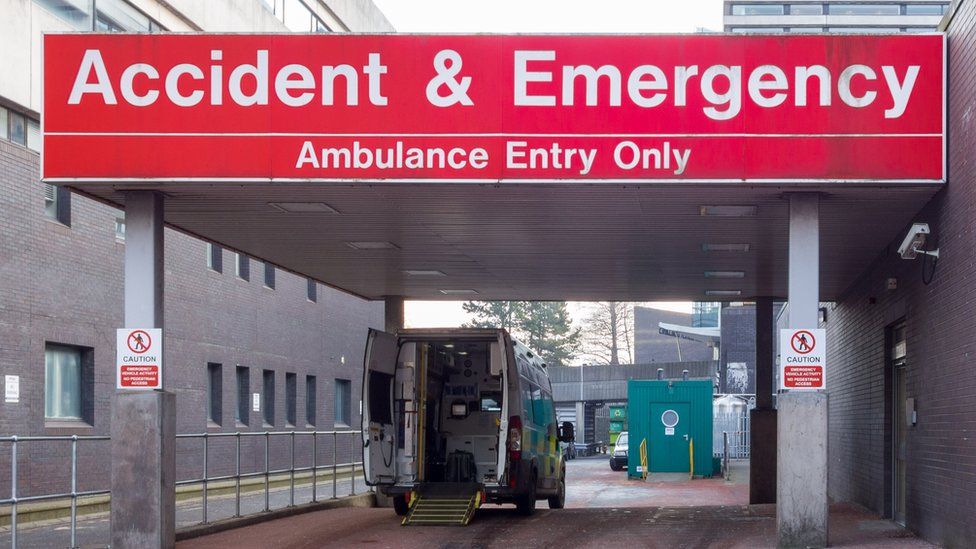A&E cuts will hit 23m people, British Medical Association says
- Published
- comments

Nearly 23 million people in England - more than 40% of the population - could be affected by proposed cuts to A&E departments, doctors are warning.
The analysis of NHS plans by the British Medical Association also warned the changes were being rushed through without the evidence they will work.
The proposals have been put forward by local managers seeking to make savings under the direction of NHS England.
Bosses have argued services in the community will be boosted in return.
Under the so-called "sustainability and transformation programme" (STP), England has been divided into 44 areas and each asked to come up with its own proposals.
After analysing local plans, the BMA found:
- 18 of them, covering a population of 22.9 million, involved the closing or downgrading of an A&E department
- 14 of them, responsible for 17.6 million patients, propose closing or merging a hospital
- 13 of them, covering a population of 14.7 million, have put forward closing hospital beds
As the STP areas cover quite wider geographies with several hospitals, a cut may not mean everyone sees their nearest hospital affected.
It could, for example, have an impact on the hospital in the next county or town. But the BMA argues everyone will be affected as a closure in one part of the area means a knock-on for other sites in the patch.
A separate exercise, involving freedom of information requests which half of STPs answered, found more than 150 new jobs had been created to run them, at a cost of £8.5m a year. Another £1m was being spent on agency staff and consultants, the BMA said.
BMA leader Dr Mark Porter said the money was being "wasted" and the changes "rushed through without appropriate evidence".
'Deep-seated problems'
But NHS England rejected the criticism. It argues changes will only take place when there is a viable plan to improve care elsewhere whether through centralising care at a nearby hospital or extending community services, such as with longer GP opening.
The STP process was launched at the start of 2016 with a view to identifying some of the £22bn of savings that are needed by 2020.
NHS England has said by doing more in the community or centralising specialist hospital care, such as stroke services, you can make services more efficient.
Public consultations on the most major changes are expected to get under way later this year.
A spokesman for NHS England said: "Rather than just commenting from the sidelines, local health and care leaders and clinicians are coming together to actually try and solve some deep-seated problems by identifying practical ways to improve services."
- Published14 November 2016
- Published26 August 2016
- Published25 August 2016
- Published5 August 2016
- Published15 March 2016